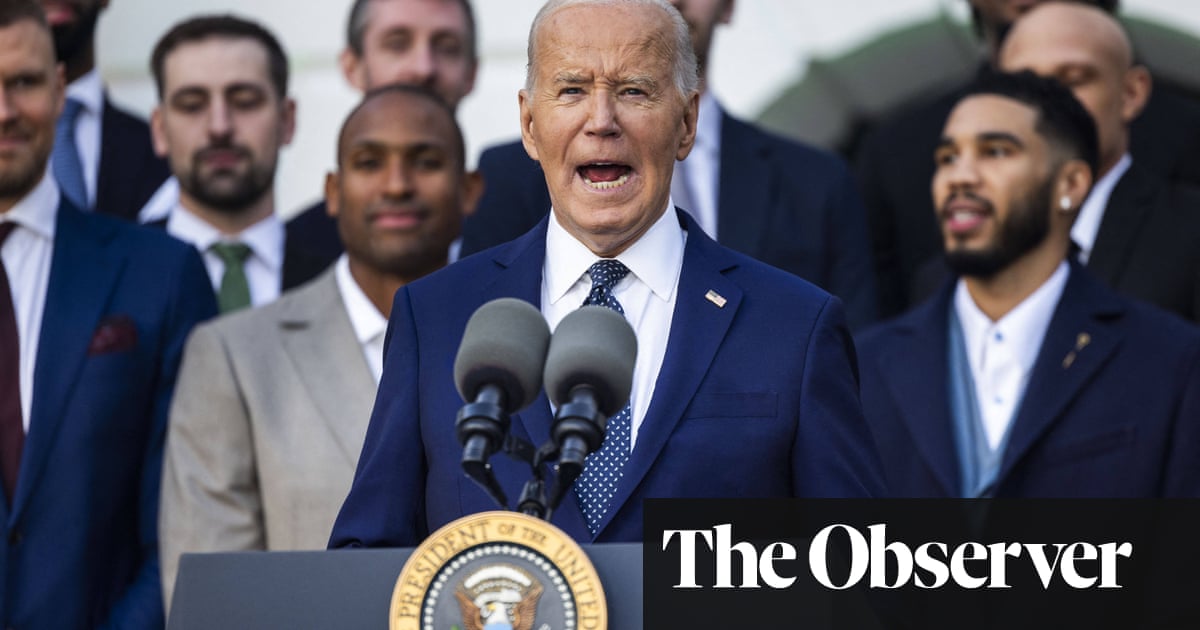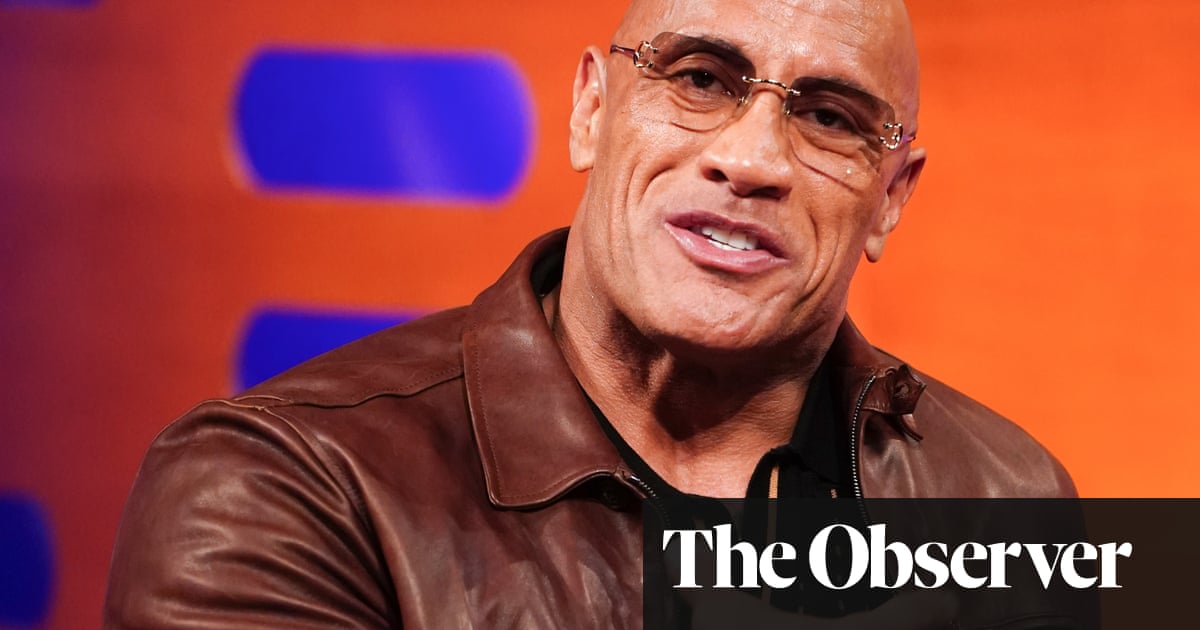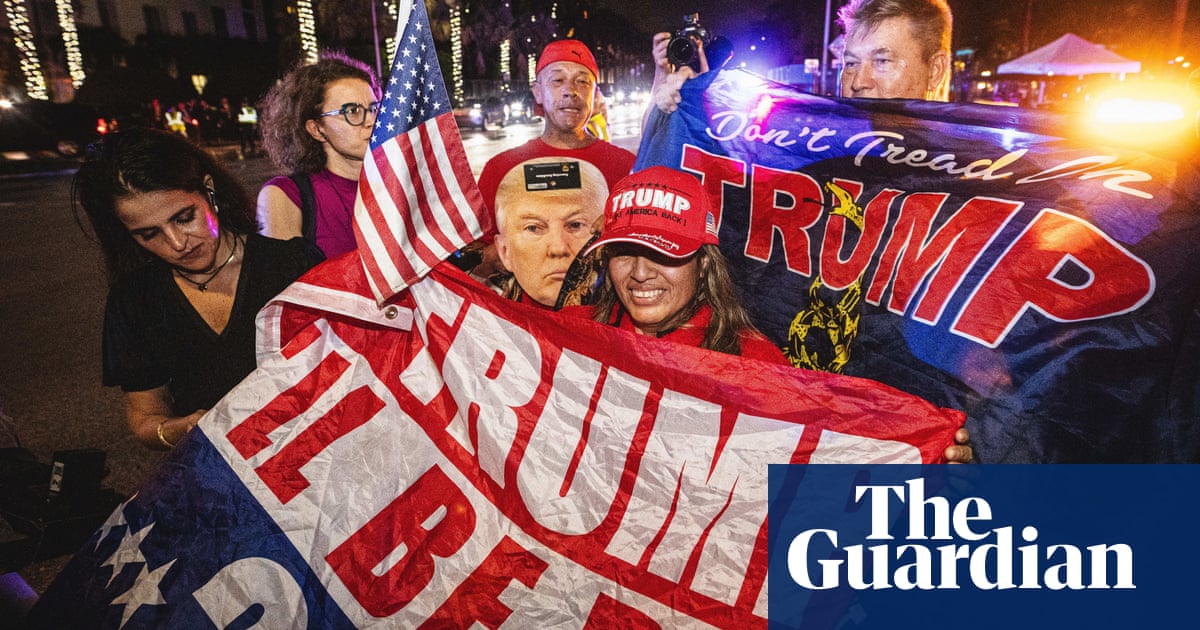LONDON — War in the Middle East and Europe. Rising far right in Europe. Economic uncertainty. And even the climate emergency. Around the world, discussion of these crises invariably turns back to a common refrain: “Well, a lot depends who wins the United States presidential election.”
This week, the world is anxiously awaiting the answer.
The “leader of the free world” always holds a huge sway over the 7.9 billion people who don’t get a vote. But this time, former President Donald Trump and Vice President Kamala Harris are so diametrically opposed — in style, substance, policy and beyond — that the victor could shape global events for years, if not decades, to come.
“This is an extremely important election for the world,” said Thomas Shannon Jr., former U.S. undersecretary of state for political affairs, the third-highest-ranking role in the State Department. Particularly, “because it comes at a time of debate within the American public about the purpose of American power in the world.”
A Harris administration “would be more predictable, and one in which both our adversaries and allies feel they have an understanding of what we might be doing,” said Shannon, a veteran career diplomat who has served senior, nonpolitical roles under presidents Trump, Barack Obama and George W. Bush.
“Trump’s approach would be more unpredictable — which would be unsettling” for both adversaries and allies, he added.
Friends, allies and foes
The feeling of anticipation is palpable in Washington’s great rival, Beijing.
The election “will have significant implications virtually for everyone in the world — for good or evil,” said Dong Wang, an international studies professor at Peking University.
Trump and Harris have “completely different competing visions of the global order,” said Wang, executive director at the university’s Institute for Global Cooperation and Understanding. Harris would bring “more continuity and predictability,” he said, “but we cannot assume she will be Biden 2.0. Whereas Trump would mean “more unpredictability for many countries in the world — for friends, allies and foes alike.”
Many in Beijing see peril in both candidates at a time when China hawkishness is about the only issue of bipartisan consensus in Washington.
Despite the sluggishness of China’s economy and America’s strong performance by comparison, the Asian giant is still forecast to overtake the U.S. economically at some point in the next two decades. And so influential Chinese observers see Trump as one who brings unwelcome chaos and unpredictability — as well as his beloved tariffs.
During his first term, he started a trade war with Beijing, imposing $360 billion in tariffs on Chinese goods. He promises to go further this time, vowing a flat tariff of at least 60% on anything coming in from China — threatening to hike these levies to 150% or 200% if China invades Taiwan, the self-ruled democracy that Beijing claims as its own.
Then-President Donald Trump during an exchange with world leaders at the 2018 G7 summit in Canada.
“I wouldn’t have to” trigger those high tariffs, Trump told The Wall Street Journal last month, however, because Chinese President Xi Jinping “respects me and he knows I’m f---ing crazy.”
Like on many issues, of course, Trump has flip-flopped on Taiwan, suggesting it should have to pay for U.S. protection, and talking up his “very good relationship” with Xi.
Wang Yiwei, a professor of international relations at Renmin University of China, reflected on the disquiet these promises are currently stirring. “The whole world will be paying the price if Trump comes back, or even if Harris wins and actually continues with Trump’s policies,” he said.
Harris’ boss, President Joe Biden, has kept all of Trump’s first-term tariffs while adding some more of his own.
Like Biden, the vice president has said she wants to make “sure America, not China, wins the competition for the 21st century.” She also wants to “de-risk” Washington’s relationship with Beijing. This jargon essentially means she wants to continue trading with China while restricting certain exports, such as technology that can be used for military purposes.
Her running mate, Minnesota Gov. Tim Walz, has his own special connection, having taught English in China after college before setting up his own business taking high school students there for the summer. While Walz has been a vocal critic of China’s human rights abuses, some Republicans have viewed his historic ties to the country with some suspicion.
The prospect of a second Trump term is also deeply unsettling for much of Europe.
It’s not just his record of questioning basic climate science — telling a rally in Pennsylvania on Sunday that “we don’t have a global warming problem.” Nor is it his previous willingness to scrap decades-old alliances and agreements.
What worries many people — particularly liberal democratic allies — are Trump’s attempts to overturn the results of the 2020 election, his repeated praise for dictators such as Russian President Vladimir Putin, and his threats to prosecute political opponents, all of which would set an alarming precedent for the principles of democracy worldwide, according to experts in the field.
“Everybody in Europe is absolutely terrified of the violence and danger that will come from Putin if he has an ally in the White House,” said Bill Browder, a prominent anti-Russia campaigner, author and financier.
Trump has repeatedly threatened to abandon NATO — something on which smaller European allies have pinned their entire existence. Even more alarming for them in the short term, he has suggested he may withdraw support for Ukraine, criticizing the $175 billion Washington has provided to Ukraine to defend itself against Russia’s invasion, and claiming he could stop the conflict in 24 hours.
It’s unclear how this would happen without massive concessions that each side currently deems unacceptable. If the U.S. withdrew its financial support — the most of any country in the world — Ukraine’s defense would almost certainly crumble.
“Putin would end up taking over a foreign country for the first time in Europe since World War II,” Browder said. “And he’s made it pretty clear he’s not intending to stop at Ukraine.”
If Trump “abandoned” his NATO allies, he added, then “we would be back in the late-1930s, where eventually, whether it was under Trump or another president, America would get dragged into a world war.”
A second Trump term would mark a radical reawakening from Biden’s old-school transatlanticist reverie. From 2017, Trump treated America’s closest European allies with a brusqueness that shocked them (although his campaign to make them spend more on their own defense has since been widely welcomed.) This time, like China, these European powers would face a potential trade war. Trump has promised a 20% tariff on all imported goods — including a 100% tariff on cars that would be particularly painful for European automotive giants such as BMW, Mercedes and Volkswagen.
Ukrainian soldiers installing razor wire along the front line in the Donetsk region late last month.
Harris, on the other hand, has been accused by Trump and other commentators of lacking foreign policy experience, a claim that other analysts strongly dispute. Either way, many of Harris’ endorsements in Europe are hardly full-throated.
European powers know she will continue to pressure them to spend more on defense, while France and others are agitating for more long-term independence from Washington. Trump, meanwhile, has more hard-right populist bedfellows in Europe than during his first term, with Hungary’s Viktor Orban joined by like-minded nationalists from France to Finland.
Some of them speak kindly about Trump — and Putin.
“I wished him the best of luck for next Tuesday,” Orban posted on X last week after a call with Trump. “Only five days to go. Fingers crossed.”
War and peace
Whoever wins the White House will inherit two wars with global reverberations: the Russia-Ukraine war, and the widening conflict in the Middle East amid Israel’s yearlong military assault on the Gaza Strip triggered by Hamas’ Oct. 7 terror attack.
If Israelis had a vote, they would back Trump solidly. Prime Minister Benjamin Netanyahu has known Biden for decades, but “Bibi’s” public defiance of Washington over Gaza and Lebanon has strained their relationship like never before. By contrast, Netanyahu described Trump in 2020 as “the best friend Israel has ever had in the White House,” thanks to the then-president moving the U.S. embassy from Tel Aviv to Jerusalem and recognizing Israel’s contested claim to the Golan Heights.
Trump and his son-in-law, Jared Kushner, also helped broker the Abraham Accords, normalization agreements between Israel and Gulf Arab kingdoms of Bahrain and the United Arab Emirates. However, he was also angered by Netanyahu’s congratulations to Biden in the 2020 election, which Trump falsely claimed to have won.
Israeli Prime Minister Benjamin Netanyahu meeting with Vice President Kamala Harris in Washington earlier this year.
Biden and his allies have pursued a dual strategy: criticizing Israel’s actions in Gaza while continuing to fund and arm the Israeli military to the tune of more than $3 billion — increasing to $14 billion after Oct. 7.
Few expect a Harris administration to turn away from Israel, although she has often presented herself as a more compassionate voice in the Biden administration when it comes to the Palestinians.
She has said that she “will always give Israel the ability to defend itself,” while striving for a two-state solution “where the Palestinians have security, self-determination and the dignity they so rightly deserve.”
The administration’s approach has been criticized from multiple sides, however, with diplomatic observers noting how little influence it appears to have over Israel, and progressives accusing it of complicity in a war they believe has breached international law. The humanitarian horror in Gaza has impacted the Democratic campaign, with more than 43,000 people killed, according to local officials, and most of the buildings in the enclave damaged or leveled entirely.
“We long to see an American president who’s serious about ending the war immediately whilst addressing the root cause of conflict,” said Sabri Saidam, a senior official in the Palestinian political party Fatah, which has historically openly opposed Hamas, who declined to back either candidate. “We, therefore, need deeds, not words!”
On the other side of the fence, former Israeli Finance Minister Meir Sheetrit has said that the most important thing, no matter who wins, is that Israel continues its invaluable partnership with Washington, something he believes has faltered under Netanyahu.
“Trump and Harris are totally different characters,” he said. “But Israel should remain completely objective; Israel has to be with the United States either way.”
Ultimately, both Ukraine and Gaza demonstrate the polarized lenses of American politics: Harris supporters see Trump as a dangerous isolationist who would abandon Washington’s most beloved allies; Harris critics say she is yet another backer of Washington’s militarist foreign policy establishment, an attempt to play global cop that’s replete with failures from Vietnam to Afghanistan.
The Harris campaign countered criticism that she lacked foreign policy experience by saying that more than 350 “top national security leaders” had already endorsed her and she was “ready to serve.”
“She has more significant national security experience than any of the last four presidents before President Biden, and Tim Walz is the longest-serving veteran to be a vice presidential nominee,” according to a two-page statement on Harris’ foreign policy sent by a campaign spokesperson.
The Trump campaign did not respond to a request for comment.
Eroding American order
This sense of global volatility is amplified by a group of so-called “swing” countries — including India, Indonesia and Saudi Arabia — whose alliance is split between the U.S. and China, but whose resources and military-economic support could prove pivotal.
One of these hotbeds of pre-election activity is Riyadh, where Elon Musk last week paused his pro-Trump electioneering to beam in to the Future Investment Initiative conference, a gathering at the nexus of foreign affairs, tech and global investments.
Musk talked about artificial intelligence, demographics and inevitably politics, and as he described the Biden administration as “slow strangulation from over regulation,” he received loud applause.
Saudi Arabia and its neighboring powerhouse, the UAE, would gain economically and militarily from a Trump victory. Though they would also likely compete for access and influence — a view apparently supported by the majority of the global investment crowd attending.
Ukrainian President Volodymyr Zelenskyy surrounded by world leaders at NATO's 75th anniversary summit in Washington in July.
An electronic straw poll of the audience asked: “Which next American president would improve the global economy?” Trump beat Harris 67% to 33%.
Another one of the “swing” powers is South Africa, although the African continent has featured little in the presidential campaign. So too is Brazil, which like the rest of Latin America, is braced for the market volatility that a Trump victory could bring, analysts say.
Ultimately, and perhaps paradoxically, although the next president will hold huge sway over these chaotic global undercurrents, the occupant of the Oval Office will not be the dominant hegemonic leader as in the 20th century.
“We’re shifting out of this post-World War II order into something else — and we’re not quite sure what that’s going to be,” said Karin von Hippel, a former nonpolitical senior adviser at the State Department under President Barack Obama.
Von Hippel, now the director of the Royal United Services Institute, a leading London think tank, believes a Trump win would cause the U.S. to become more marginalized globally. But Harris would only slow that trend: “Whoever wins, we’re going to see a further erosion of America’s moral authority and soft power — just at different rates.”
This article was originally published on NBCNews.com

 German (DE)
German (DE)  English (US)
English (US)  Spanish (ES)
Spanish (ES)  French (FR)
French (FR)  Hindi (IN)
Hindi (IN)  Italian (IT)
Italian (IT)  Russian (RU)
Russian (RU) 



























Comments